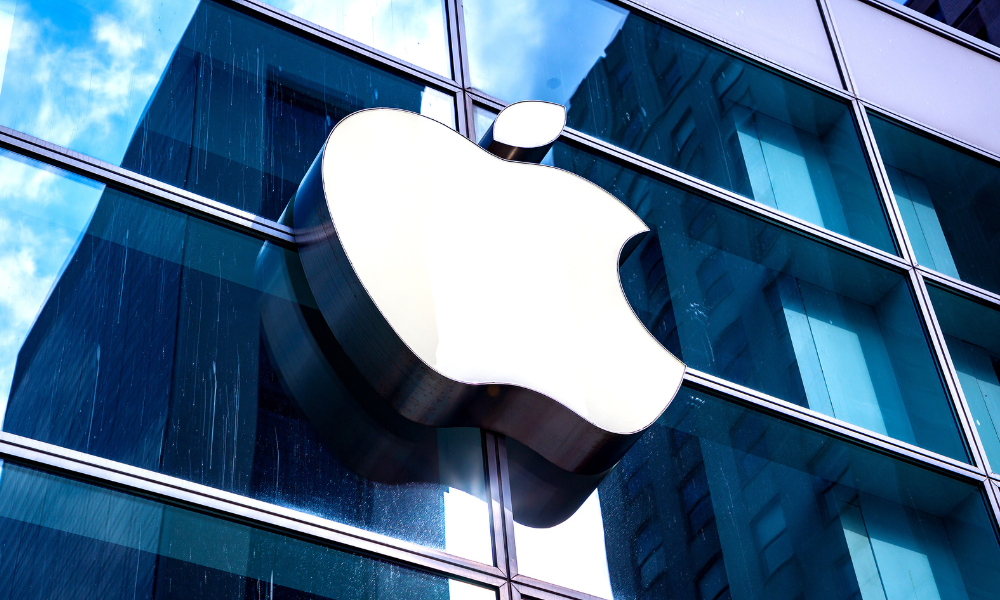

by Mark Gurman and Vlad Savov
Apple Inc. plans to source more than 19 billion chips from the US this year, part of a global supply chain shift to gradually lessen its reliance on China and elevate India for iPhone production.
Chief Executive Officer Tim Cook talked about leaning more heavily on Taiwan Semiconductor Manufacturing Co., which is expanding its Arizona operations to half a dozen plants. He also affirmed expectations that Apple will in future make the vast majority of its US-bound iPhones in India — reducing output from China as the Donald Trump administration threatens to slap punitive tariffs on its Asian rival. India was mentioned almost as many times as China on Thursday’s post-earnings conference call, reflecting its rising importance.
Cook however was mum on a series of questions about how potential tariffs on consumer electronics may affect Apple’s business, saying “it’s very difficult to predict beyond June.” Chief Financial Officer Kevan Parekh said Apple’s commentary on the call assumes that current global tariff rates and policies remain in effect and that the global macroeconomic outlook doesn’t worsen.
The Cupertino, California-based company’s much-awaited quarterly earnings report failed to soothe investor concerns about its biggest challenges, including escalating tariff costs and a slowdown in China. The company’s shares declined as much as 4.2% in late trading Thursday after Apple released second-quarter results that included worse-than-expected sales in China.
Apple has accelerated its manufacturing expansion in India, which is both rising as a market — at a time when Apple’s China sales keep declining — and is likely to be a more politically favored US trade partner over the long run. Apple already makes 20%, or one in five, of its iPhones in the South Asian country. It expects to import most of the iPhones for the US from India by the end of next year.
“We have a complex supply chain, there’s always risk in the supply chain,” Cook told analysts on the call. “What we learned some time ago was that having everything in one location had too much risk with it and so we have, over time, with certain parts of the supply chain, not the whole thing, but certain parts of it, opened up new sources of supply.”
Beyond India, Trump wants Apple to begin building its devices in the US. But that’s unlikely to happen at scale in the foreseeable future. For now, Cook pledged to ramp up local procurement of chips and other components.
The iPhone maker will obtain tens of millions of advanced processors from a new facility in Arizona operated by TSMC this year, Cook said. That’s started making processors for low-end iPads and Apple Watches, Bloomberg News has reported. Apple and TSMC have both announced US investments amounting to hundreds of billions of dollars in line with the White House’s push to bring advanced manufacturing to the country.
Trump’s administration has imposed tariffs on goods imported from China and threatened additional levies to other nations who don’t negotiate new trade agreements over the coming weeks. Some electronics including iPhones are at present exempt.
The Apple CEO also discussed how the company sources glass for iPhone screens from the US, likely referring to Corning Inc. Earlier this year, Apple said it would invest $500 billion in the US over the next four years, including by manufacturing AI servers at a plant in Texas.
Copyright Bloomberg News

Deal volume increased post-election but now caution has taken over.

Advisors who expect an edge from alternatives' illiquidity premium – without understanding the underlying terms and explaining them to clients – have a world of learning to do.

The social influencer Tyler Bossetti pleaded guilty to wire fraud and aiding in the filing of false tax documents as a result of the real estate scheme, which ran from 2019 to 2023 and used platforms including Facebook and YouTube.

The latest LIMRA data release shows continued growth in RILAs, variable annuities, and FRD products, though researchers argue more education is still needed.

Indivisible Partners builds on its strategy to take turf in the independent space with its latest move in Colorado.
Barely a decade old, registered index-linked annuities have quickly surged in popularity, thanks to their unique blend of protection and growth potential—an appealing option for investors looking to chart a steadier course through today's choppy market waters, says Myles Lambert, Brighthouse Financial.
How intelliflo aims to solve advisors' top tech headaches—without sacrificing the personal touch clients crave
